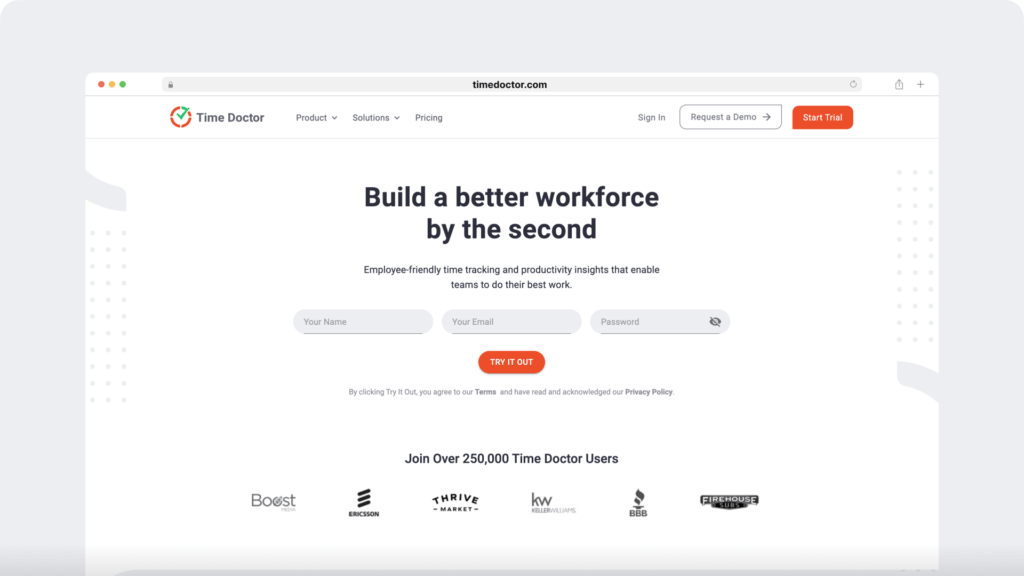Tata Consultancy Services (TCS), one of the world’s largest IT services companies, recently changed its policies. Starting on October 1, TCS mandated that its employees work from the office five days a week.
As a result of this new policy, employees who fail to comply may face disciplinary action from the company. Employees and employers have expressed a variety of perspectives and considerations regarding this decision.
Let’s explore both perspectives, the implications of this shift, the future of work, and how tools such as Time Doctor can assist in managing this transition.
Employee’s viewpoint:
- Mixed reactions: Employees have diverse reactions to this change. Some are excited about returning to the office, citing a desire for social interaction and a structured work environment. Others, however, express concerns about commuting, work-life balance, and potential health risks.
- Commute and convenience: For many, the return to daily commutes presents a significant challenge. Long hours spent traveling to the office can be tiring and impact overall productivity.
- Work-life balance: Employees who have grown accustomed to the flexibility of remote work are worried about how the shift will affect their work-life balance. Juggling personal responsibilities and office hours can be a source of stress.
- Mental health considerations: The transition back to the office may bring about mental health concerns for some employees. Anxiety and stress related to the change in routine and social interactions need to be addressed.
Employer’s viewpoint:
- Productivity and collaboration: TCS’s decision to return to an office-centric model is driven by the belief that in-person collaboration enhances productivity and fosters innovation. Face-to-face interactions can promote faster decision-making and knowledge sharing.
- Corporate culture: Maintaining and nurturing the company’s culture is a priority for employers. Being physically present in the office helps in building a sense of belonging and shared purpose among employees.
- Security and data protection: For companies like TCS, which handle sensitive client data, ensuring the security and confidentiality of information is paramount. Having employees in a controlled office environment can mitigate security risks.
The future of work
TCS’s decision to end its hybrid working model signals a shift in the way some companies are approaching work in the post-pandemic world. However, it’s important to remember that there is no one-size-fits-all approach to the future of work. Each organization will need to carefully consider its unique circumstances, employee preferences, and industry dynamics to determine the most suitable work model for its future success. Adaptability, technology, and a focus on employee well-being will continue to be essential factors in shaping the future of work across industries.
How Time Doctor can help:

- Time tracking: Time Doctor offers detailed time tracking capabilities, enabling employers to monitor work hours and productivity, whether employees are in the office or working remotely.
- Workforce management: Employers can use Time Doctor to manage schedules, allocate tasks, and track progress, ensuring that employees remain on track with their work.
- Performance analytics: The software provides valuable insights into employee performance, helping employers identify areas of improvement and make data-driven decisions.
- Flexibility: Time Doctor can be configured to accommodate flexible working hours and remote work, making it a versatile tool for companies transitioning between office-centric and hybrid models.
Conclusion
TCS’s decision to return to an office-centric work model has sparked debates among employees and employers regarding its implications and challenges. Tools like Time Doctor can assist in managing this transition effectively by ensuring productivity, accountability, and flexibility, addressing the needs and concerns of both parties as they adapt to the new normal of work.


